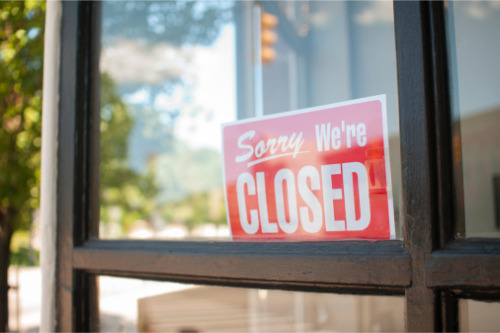

With several commercial properties such as offices and restaurants left vacant due to pandemic-induced closures, potential risks aren’t necessarily out of the door as well. To help clients address the likely woes surrounding unoccupancy, insurance brokerages Gallagher Australia and Lockton Australia have released guidelines and here we give you the lowdown.
Gallagher Australia
In its blog, Gallagher Australia said businesses should secure cash and valuables; empty waste bins and the fridge and also get rid of any combustible material; consider what needs to be unplugged and what must be kept running; ensure both external and internal security; and check that insurance is up to date before suspending operations.
Gallagher – which has also made a checklist available that clients can use – added that customers, business partners, as well as the insurance broker should be informed of the closure. In addition, it cited the importance of having a response plan in place.
“Along with providing contact information in your messaging, you need an action plan for responding to an issue,” advised Gallagher. “If you are the key point of contact, organise for a secondary contact if you are not available when the alert comes.
“Also consider if you’re physically able to attend the premises promptly. You may need to deputise someone else if you are going to be at a distance, and if this is necessary make sure they have the information and access they will need if they’re called on.”
In addition, the broker reiterated that its experts are on hand to offer further advice and guidance.
Lockton Australia
Meanwhile, addressing property owners, Lockton Australia’s national manager of global real estate and construction Stephen Cooper had this to say: “With the current situation, we are sure there will be instances where you are unaware that the tenant is no longer trading from the property.
“We ask that if any premises are due to be closed or significantly unoccupied, please let us know so we can inform the insurers.”
Cooper also listed a number of risk management pointers, including securing the premises against unauthorised intrusion; disconnecting the electricity supply at the mains unless needed to maintain systems such as alarms and fire suppression; and disconnecting the gas and water supplies unless used to maintain essential services while at the same time checking that there are no leaking fluids or spills.
Similarly, Lockton recommended clearing all combustible waste and emptying bins, as well as considering waste build-up and the controls needed if waste collection services are affected. Meanwhile letterboxes should be sealed, with post redirected if needed.
Subject to government restrictions, periodic building inspections must also be implemented where possible. Cooper suggested considering the provisioning for alternative skilled personnel, such as security guarding or patrolling companies, as well.
“Do not carry out hot work or other hazardous activities without insurers’ written consent,” added the Lockton executive, who also stressed that perimeter security, fences, and lighting should be operational and in good condition.
